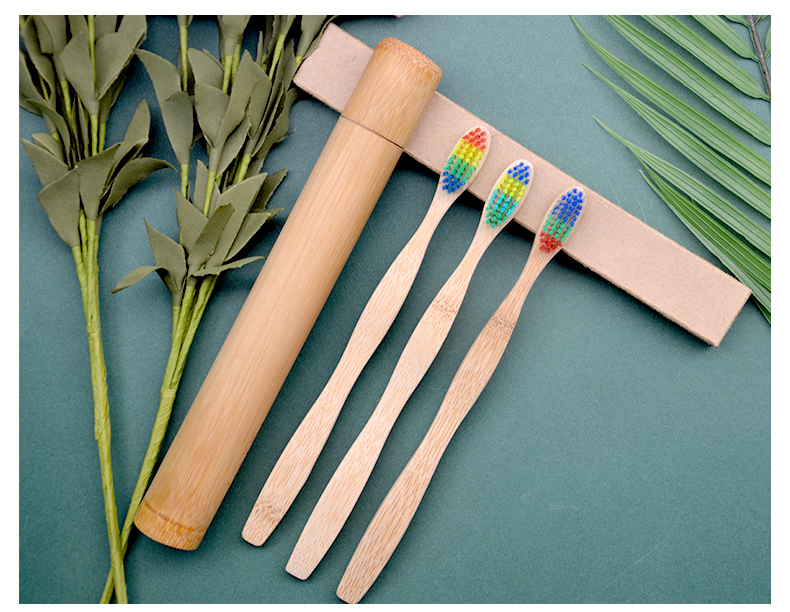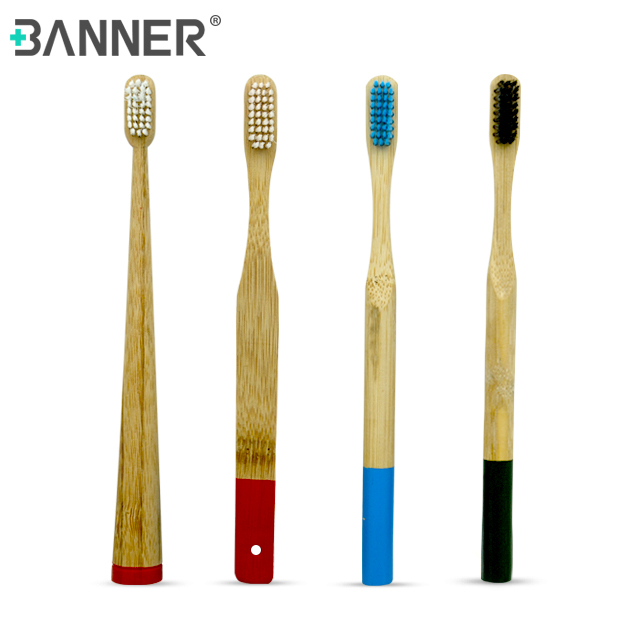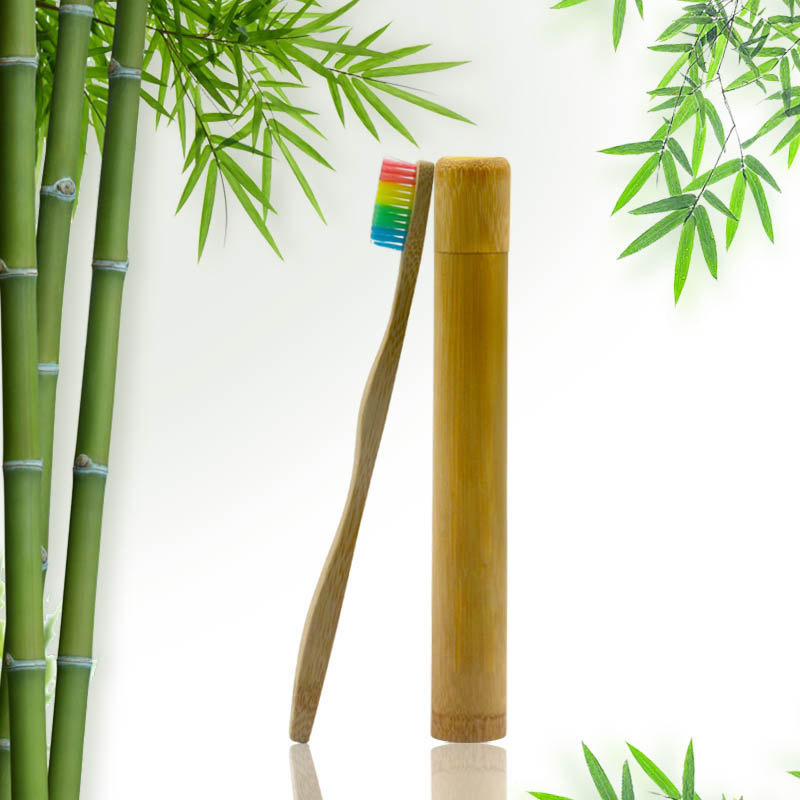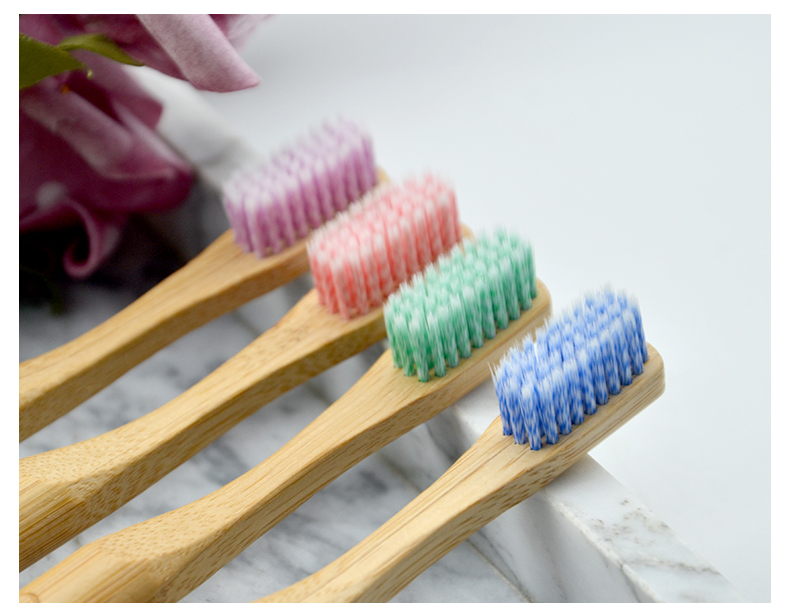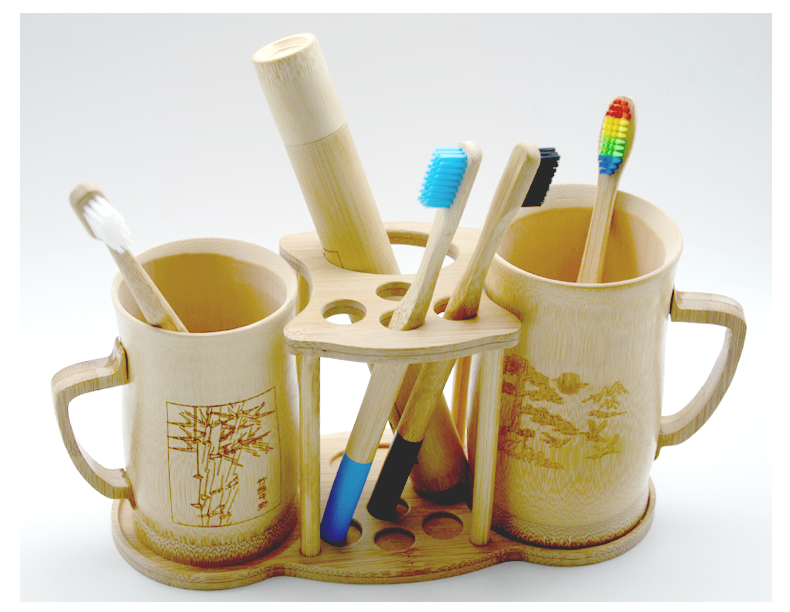In recent years, bamboo toothbrushes have gained significant traction as a sustainable alternative to traditional plastic toothbrushes. With increasing awareness of the environmental impact of plastic waste, many individuals and communities are exploring eco-friendlier options for everyday items. Bamboo toothbrushes represent a simple yet impactful step towards reducing plastic consumption and promoting a healthier planet. This article delves into the myriad benefits of bamboo toothbrushes, highlighting why making the switch is a smart choice for both your health and the environment.
What is a Bamboo Toothbrush?
A bamboo toothbrush functions much like any other manual toothbrush, designed to maintain oral hygiene by removing plaque and food debris from your teeth and gums. The key difference lies in the materials used. Traditional toothbrushes typically feature plastic handles and nylon bristles, which contribute significantly to plastic pollution. In contrast, bamboo toothbrushes have handles made from bamboo—a renewable and biodegradable material. The bristles can also vary, often made from biodegradable nylon or other sustainable materials.
The origins of bamboo toothbrushes can be traced back to ancient China, where bamboo handles and natural bristles were commonly used. Today, modern bamboo toothbrushes have evolved but continue to draw on this ancient wisdom, offering a sustainable alternative that meets contemporary dental care standards.
Environmental Benefits of Bamboo Toothbrushes
1. Biodegradable and Plastic-Free
One of the most compelling reasons to switch to bamboo toothbrushes is their biodegradability. Unlike plastic, which can take hundreds of years to decompose, bamboo can break down in as little as a few months under the right conditions. This significantly reduces the environmental footprint associated with toothbrush disposal. When a bamboo toothbrush has reached the end of its life, you can simply remove the bristles and compost the handle, allowing it to return to the earth as organic matter.
2. Sustainable Resource
Bamboo is one of the fastest-growing plants on Earth, making it an incredibly sustainable resource. It can grow up to three feet in just 24 hours and reaches maturity in about three to five years. This rapid growth rate means that bamboo can be harvested more frequently than traditional wood sources, without causing deforestation or soil degradation. Furthermore, bamboo cultivation typically does not require pesticides or fertilizers, making it an eco-friendly crop with minimal environmental impact.
3. Lower Carbon Footprint
The production of bamboo toothbrushes generates a significantly lower carbon footprint compared to plastic toothbrushes. Bamboo plants absorb large amounts of carbon dioxide and release oxygen, which helps to mitigate climate change. Additionally, the manufacturing process for bamboo toothbrushes is less energy-intensive and polluting than the process for plastic toothbrushes, which involves the extraction and processing of fossil fuels.
4. Reduction in Plastic Waste
Plastic waste is a monumental global issue, with millions of tons entering our oceans each year. Traditional plastic toothbrushes contribute to this problem, as they are rarely recycled and often end up in landfills or marine environments. By switching to bamboo toothbrushes, you can help reduce the demand for single-use plastics and decrease the volume of plastic waste that ends up harming wildlife and ecosystems.
Health Benefits of Bamboo Toothbrushes
1. Chemical-Free and Non-Toxic
Many conventional plastic toothbrushes contain chemicals such as BPA (Bisphenol A), which have been linked to various health issues, including hormonal disruptions and potential cancer risks. Bamboo toothbrushes, on the other hand, are generally free from harmful chemicals. They offer a safer alternative for individuals concerned about the potential health impacts of plastic products.
2. Naturally Antibacterial
Bamboo has natural antibacterial properties, which help to reduce the presence of harmful bacteria on the toothbrush handle. This can contribute to better oral hygiene and a lower risk of infections compared to plastic handles, which can harbor bacteria and require more rigorous cleaning.
3. Effective Oral Care
Bamboo toothbrushes are designed to provide the same level of dental care as their plastic counterparts. They come with soft, durable bristles that are gentle on the gums and effective at removing plaque and food particles. Whether you choose a toothbrush with bristles made from nylon or a more sustainable material like castor bean oil-derived bristles, you can be confident that your bamboo toothbrush will keep your teeth clean and healthy.
Versatility and Reusability
One of the unique advantages of bamboo toothbrushes is their versatility and potential for reuse. Even after their primary use, bamboo toothbrushes can serve a variety of purposes:
- Cleaning Tool: The small size and sturdy handle make bamboo toothbrushes ideal for cleaning hard-to-reach spots around the house, such as grout lines or kitchen appliances.
- Gardening Aid: You can use the handle as a plant marker in your garden, helping to keep your plants organized and identifiable.
- Creative Projects: Bamboo toothbrushes can be repurposed for arts and crafts projects, such as making mini picture frames or decorative items.
By finding new uses for your old bamboo toothbrush, you can extend its life and reduce waste even further.
Caring for Your Bamboo Toothbrush
To maximize the lifespan and effectiveness of your bamboo toothbrush, it’s important to take proper care of it:
- Dry Storage: Bamboo is a natural material and can absorb moisture, which may lead to mold growth if stored improperly. Keep your toothbrush in a dry, open-air holder and avoid enclosed containers that can trap moisture.
- Regular Cleaning: Rinse your toothbrush thoroughly after each use and allow it to air dry. Periodically, you can clean the handle and bristles with a natural, mild soap to remove any residue or bacteria.
Replace as Needed: Like any toothbrush, a bamboo toothbrush should be replaced every three to four months or when the bristles show signs of wear. Proper care will ensure that your bamboo toothbrush remains effective and hygienic throughout its lifespan.
How to Dispose of a Bamboo Toothbrush
Disposing of a bamboo toothbrush is straightforward and environmentally friendly:
- Remove the Bristles: Using pliers, pull out the bristles from the handle. These can be placed in your plastic recycling bin if they are made from recyclable materials.
- Compost the Handle: The bamboo handle can be added to your home compost bin or buried in your garden. It will decompose naturally over time, enriching the soil.
Recycle or Reuse: If composting is not an option, check if there are local recycling facilities that accept bamboo products. Alternatively, get creative and find a new use for the handle as described earlier.
Conclusion: Why Bamboo Toothbrushes Are the Future
Switching to a bamboo toothbrush is a small yet significant step towards reducing plastic pollution and promoting sustainable living. With their environmental benefits, health advantages, and versatility, bamboo toothbrushes offer a superior alternative to traditional plastic brushes. By making the switch, you not only contribute to a cleaner planet but also enjoy a more natural and healthier approach to dental care.
In a world increasingly aware of its ecological footprint, bamboo toothbrushes represent a practical and impactful choice. So why not take the plunge and make the switch today? Your teeth, your health, and the environment will thank you!
Post time: Jun-11-2024


